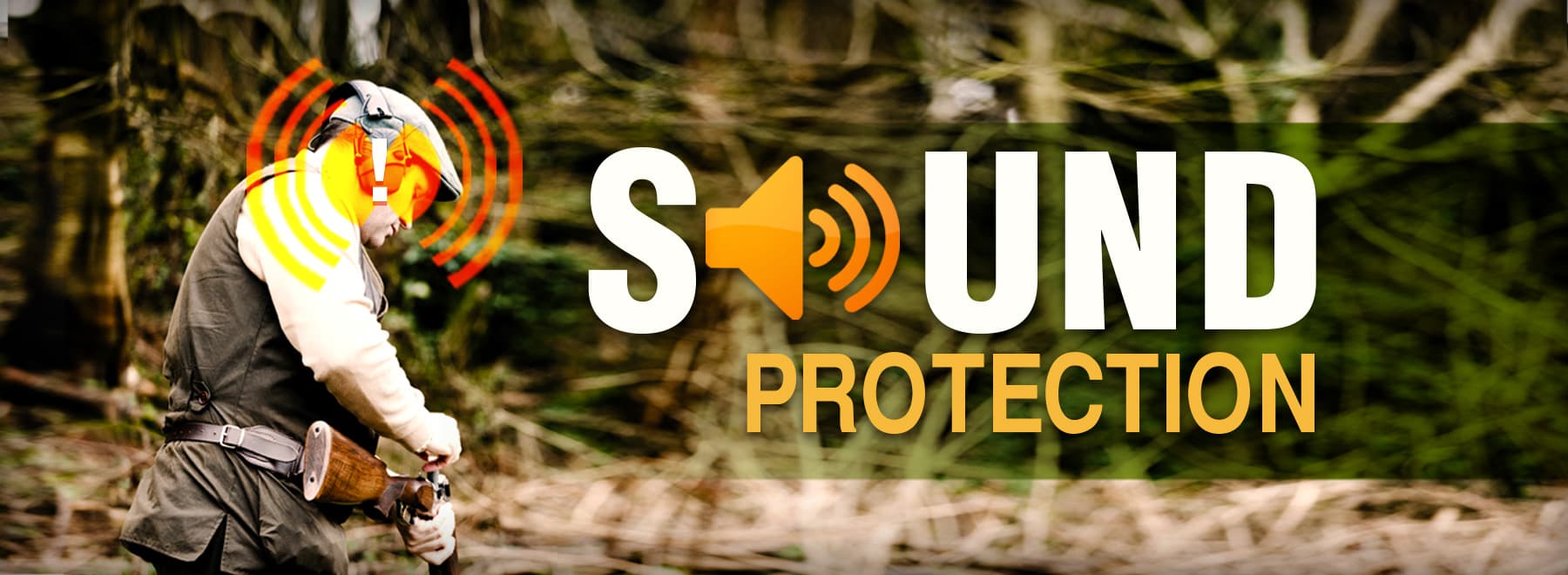To stave off hearing loss, follow UMMC audiologists’ advice
The gentle rustle of leaves when the wind changes direction. The shrill squeak of a squirrel as a deer approaches its drey. The distant caw of a crow taking flight, disturbed from its grub worm breakfast.
The staccato report of a rifle after quarry has been sighted.
Successful hunters rely on their hearing as much as any of their senses while stalking their prey. With such a range of sounds - from the gentlest flutter to the loudest gunfire - hearing protection is vital to help hunters avoid noise-induced damage that could one day limit their enjoyment of wild game pursuit.

Any sounds greater than 85 decibels could be potentially harmful, according to Dr. Mary Frances Johnson, associate professor of otolaryngology and head and neck surgery at the University of Mississippi Medical Center. Gunshots typically register about 140 decibels.
“Because of the intensity of gunfire, there’s a significant risk for hearing loss,” Johnson said. “The risk can depend upon factors such as how loud the sound is and how long you are exposed to it.
“There are different types of hearing loss, but noise-induced hearing loss is preventable. People who take part in hunting and other loud hobbies are putting themselves at a potential risk for noise-induced hearing loss, but there are hearing protection devices that will allow them to take part and enjoy those activities at a safer sound level.”
Johnson said hunters might experience certain warning signs that could indicate hearing loss:
- Tinnitus, more commonly referred to as ringing in the ears
“It’s not uncommon to have a slight ringing in the ears on occasion,” she said. “But if it becomes bothersome and lasts all day, keeps you awake at night, or if you notice it only in one ear, it could be a sign of hearing damage,” she said. - Muffled hearing
“When someone is speaking directly to you, but you find yourself asking for repetition or if you find yourself leaning in or straining to hear the conversation, you may have a hearing problem.” - Volume decrease
“Most people schedule a hearing test when they realize the need for increased volume, particularly on their television volume range.” - Ear pain
“Any unusual or new ear pain is certainly a good reason to schedule an appointment.”
Thankfully, Johnson said, when it comes to noise-induced hearing loss, many of these can be avoided simply by consistently wearing hearing protection. But choosing the right device can be as important as selecting the appropriate gear for a given hunt.
“Over-the-counter ear plugs and ear muffs are certainly better than nothing,” she said, “but often, the one-size-fits-all products don’t feel comfortable in everyone’s ears, and hunters don’t want or have the time to stop what they’re doing to put on headphones. They don’t want to miss the experience of walking through the woods, hearing the sounds and localizing where the game is.”

Dr. Christopher Spankovich, associate professor and vice chair of research in the Department of Otolaryngology and Communicative Sciences, said effective hearing devices should cover the wide range of sounds hunters are exposed to in the wild.
“For many hunting scenarios, the firearm is discharged fairly infrequently,” Spankovich said. “Otherwise, the soundscape is of a fairly low level and it may be in the interest of the hunter to have situational awareness to detect game. In this case, hearing protection that is non-linear in nature may be of benefit.
“Non-lineal hearing protection is essentially talk through at lower levels offering limited attenuation of ambient sound and then suppressing sounds that reach a certain intensity, such as from the discharge of a firearm.”
State-of-the-art custom hearing protection is now available from UMMC audiologists that can augment the natural experience of hunting while protecting hearing like never before: the SoundGear Phantom, a rechargeable blue tooth sound amplifier and hearing protection device.
“It’s a better fit than standard earplugs,” she said. “Audiologists simply take an impression of the ears. The Phantom devices fit comfortably and can enhance sounds so hunters can hear all environmental sounds and game with ease. As soon as they fire a gun, the sound is automatically suppressed and the device serves as hearing protection.
“As a bonus, they’re blue tooth compatible. You can wirelessly stream music or calls from your phone. The Phantom devices have a noise reduction rating of up to 25 decibels and offers suppression of sounds at 90 decibels and above.”
Other uses of firearms may require alternative hearing protection, Spankovich said.
“For target shooting, we often recommend dual hearing protection - earplugs plus earmuffs over to confer the greatest protection,” he said. “This is due to the high number of rounds being discharged and the proximity to other shooters at a range.
“Interestingly, the output of a firearm at the shooter’s ear can be dependent on the length of the barrel, ammunition, gas-operating system (direct impingement vs. gas piston), use of a muzzle break and use of a suppressor.”
Johnson said hearing protection isn’t just for hunters: There are custom hearing protection devices for others that includes:
- Musicians and concert-goers
- Motorsports enthusiasts
- People in the dental profession
- Those who work with power tools or enjoy woodworking
- People who use heavy machinery or farm equipment
- Those who mow their yard and work with landscaping machinery
- People who enjoy setting off fireworks
- Those who have a snoring spouse
In fact, Johnson said she wears custom-fitted hearing protection herself.
“I don’t go to sporting events, the rodeo, concerts or anywhere else with loud noise without them,” she said. “Most people have had the experience of leaving a noisy event and their ears are ringing or sound is muffled for a period of time. When you wear proper hearing protection, you can remain in that environment for a longer period of time and not experience those symptoms afterward.”
She recommends anyone who is experiencing any of the hearing loss warning signs listed above to contact UMMC audiologists to schedule a hearing test. She also encourages everyone to include healthy hearing in their list of new year’s resolutions.
“Truthfully, we live in a noisy world, but most people don’t consider some of the things they enjoy doing as being noisy tasks or noisy hobbies,” she said. “But they can, in fact, cause a problem.
“If people know they are actively engaged in loud hobbies or have occupational noise exposure, I would encourage them to get a baseline hearing test. They may not detect a hearing problem, but with a formal hearing evaluation, we’ll know how to best monitor and protect hearing moving forward.”
While the thought of adopting a lifestyle of consistent use of hearing protection may not seem important to you now, Johnson said the long-term benefits are worth it.
“It’s a lot easier to get used to wearing hearing protection now than to continue putting yourself at risk for noise-induced hearing loss and find out that you need hearing aids later on,” she said.
For more information about hearing loss or to make an appointment with a UMMC audiologist, contact the clinic at (601) 815-6064.
The above article appears in CONSULT, UMMC’s monthly e-newsletter sharing news about cutting-edge clinical and health science education advances and innovative biomedical research at the Medical Center and giving you tips and suggestions on how you and the people you love can live a healthier life. Click here and enter your email address to receive CONSULT free of charge. You may cancel at any time.



